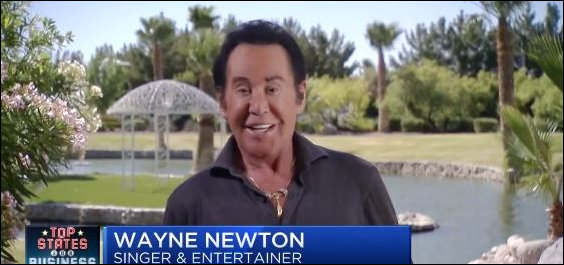Congratulations, Virginia, you’ve clawed your way back to the top of the heap, proclaimed by CNBC to be the Top State for Business in 2019. The honor is well earned. As Wayne Newton said in a nine-minute CNBC piece: “Hi, I’m Wayne Newton, born and raised in Virginia. Now here’s why Virginia has been named the number one state for business…”
Wait… What? Wayne Newton? I thought he lived in Las Vegas. Come to think of it, aren’t those palm trees in the background?
The CNBC ranking — based on 60 metrics of competitiveness in workforce, education, economy, infrastructure, cost of doing business, and quality of life — is a useful exercise. (You can view the methodology here.) Virginia does excel in the quality of its workforce and education. With luck, the attention generated by the study will stimulate out-of-state companies to consider locating in the Old Dominion. But I’m not sure if the CNBC profile accompanying the annual report represents a net gain or net loss for the state’s reputation.
The piece does highlight Amazon’s decision to locate its HQ2 project in the state, and it alludes to the tech-savvy workforce and quality of the higher-ed system. But it also plants the state firmly in the distant past with images of historic Jamestown and a marching fife-and-drum band. Other highlights noted in the profile: Chapstick was invented in Lynchburg, the first peanut crop was raised in Virginia, the movie “Dirty Dancing” was filmed at the Mountain Lake Resort, and Cyrus McCormick, inventor of the mechanical reaper two centuries ago, was born in the state.
Well, that ought to get out-of-state businesses champing at the bit!
Speaking of things that happened long ago, Wayne Newton was born in Norfolk 77 years ago, and he lived briefly in Roanoke. But he moved as a child to Newark, Ohio, and then, when he established his singing career, to Las Vegas in 1958. Is Virginia so bereft of celebrities that Newton is the best CNBC could dredge up?
In an interview with Governor Ralph Northam, CNBC’s talking head Scott Cohn inquired about Virginia’s dependence upon military spending, dwelled upon its high cost of doing business, and asked the governor what the blackface scandal means for Virginia’s image as an “inclusive” state.
That gave Northam an opportunity to discuss the social injustices he has learned about since the scandal broke. Said the governor: “As we sit here today, Scott, there are a number of inequities in our society that include access to health care, access to education, access to the business environment, access to the voting booth. We are focusing on those inequities, and our cabinet members are addressing those. But I want to let the country know … we are an inclusive state.”
On the positive side, neither Cohn nor Northam mentioned Virginia’s slave-holding heritage or Richmond’s role as the Capital of the Confederacy! You can’t buy that kind of publicity!



Leave a Reply
You must be logged in to post a comment.